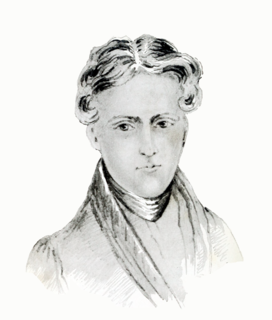A Quote by Robert Murray M'Cheyne
Every wise workman takes his tools away from the work from time to time that they may be ground and sharpened; so does the only-wise Jehovah take his ministers oftentimes away into darkness and loneliness and trouble, that he may sharpen and prepare them for harder work in his service.
Related Quotes
No man is so foolish but may give another good counsel sometimes; and no man is so wise, but may easily err, if he will take no others counsel but his own. But very few men are wise by their own counsel; or learned by their own teaching. For he that was only taught by himself had a fool to his master.
At the utmost, the active-minded young man should ask of his teacher only mastery of his tools. The young man himself, the subject of education, is a certain form of energy; the object to be gained is economy of his force; the training is partly the clearing away of obstacles, partly the direct application of effort. Once acquired, the tools and models may be thrown away.
Let every woman ask herself: "Why am I the slave of man? Why is my brain said not to be the equal of his brain? Why is my work notpaid equally with his? Why must my body be controlled by my husband? Why may he take my labor in the household, giving me in exchange what he deems fit? Why may he take my children from me? Will them away while yet unborn?" Let every woman ask.
The poet needs a ground in popular tradition on which he may work, and which, again, may restrain his art within the due temperance. It holds him to the people, supplies a foundation for his edifice; and, in furnishing so much work done to his hand, leaves him at leisure, and in full strength for the audacities of his imagination.
The wise man does nothing but what can be done openly and without falseness, nor does he do anything whereby he may involve himself in any wrong-doing, even where he may escape notice. For he is guilty in his own eyes before being so in the eyes of others; and the publicity of his crime does not bring him more shame than his own consciousness of it.
Scientific discovery is a private event, and the delight that accompanies it, or the despair of finding it illusory, does not travel. One scientist may get great satisfaction from another's work and admire it deeply; it may give him great intellectual pleasure; but it gives him no sense of participation in the discovery, it does not carry him away, and his appreciation of it does not depend on his being carried away. If it were otherwise the inspirational origin of scientific discovery would never have been in doubt.
Cast not away your confidence because God defers his performances. That which does not come in your time, will be hastened in his time, which is always the more convenient season. God will work when he pleases, how he pleases, and by what means he pleases. He is not bound to keep our time, but he will perform his work, honor our faith, and reward them that diligently seek him.
The hours of a wise man are lengthened by his ideas, as those of a fool are by his passions. The time of the one is long, because he does not know what to do with it; so is that of the other, because he distinguishes every moment of it with useful or amusing thoughts--or, in other words, because the one is always wishing it away, and the other always enjoying it.
For not by art does the poet sing, but by power divine. Had he learned by rules of art, he would have known how to speak not of one theme only, but of all; and therefore God takes away the minds of poets, and uses them as his ministers, as he also uses diviners and holy prophets, in order that we who hear them may know them to be speaking not of themselves who utter these priceless words in a state of unconsciousness, but that God himself is the speaker, and that through them he is conversing with us.
































